Prøve GULL - Gratis
Sonia Is Too Complex: Q & A With A Creator Of The Libor Replacement
Bloomberg Markets
|December 2018 / January 2019
AS BANKS PREPARE to move away from the scandal-tainted London interbank offered rate, few in the city of London will be watching more closely than William Porter.

Now head of European credit strategy at Credit Suisse Group AG, Porter was working on J.P. Morgan’s short-term interest rate and strategy team in the mid-1990s as it searched for a way to hedge short-term floating-rate risks against European currencies.
Their solution was the sterling overnight index average, or Sonia. Earlier this year, the benchmark, which is considered impossible to manipulate because it’s based on actual transactions, was designated Libor’s heir apparent by the Bank of England. Here, Porter describes how Sonia came to life and why it still isn’t the perfect solution to measuring overnight lending rates.
EMMA HASLETT: Set the scene: It’s 1996, you’re working at J.P. Morgan. How does Sonia come about?
WILLIAM PORTER: It was a desire to replicate overnight swaps that existed in France. There were two swaps traded against the average overnight rate that the Bank of France observed, known as TAM. Effectively, French market participants were hedging short-term, floating-rate risks and funding risks using those swaps.
We were trading a lot of foreign exchange forwards, which have two short-term interest-rate risks, at the time. Everything, by convention, goes back to the dollar. So you’ve got the underlying currency, and you’ve got the dollar, and we wanted a way to strip that out. We were looking at ways to do it using futures, but nothing really worked because of the funding element, and we had the brain wave of starting to trade on [the] Fed funds effective [rate] the way they were used to trading in France on this TAM rate. We just started doing that, so that started the dollar overnight index swap market in London.
Denne historien er fra December 2018 / January 2019-utgaven av Bloomberg Markets.
Abonner på Magzter GOLD for å få tilgang til tusenvis av kuraterte premiumhistorier og over 9000 magasiner og aviser.
Allerede abonnent? Logg på
FLERE HISTORIER FRA Bloomberg Markets
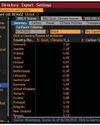
Bloomberg Markets
See Which Countries Are Falling Behind On Climate Change
Under the Paris Agreement, 190 countries and the European Union pledged to take steps to hold the global temperature rise to less than 2C (3.6F) from preindustrial levels—and preferably 1.5C.
4 mins
October - November 2021
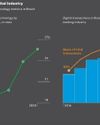
Bloomberg Markets
Billionaires Vie for the Future of Brazilian Finance
An escalating battle between two billionaires is upending the financial community in São Paulo, Latin America’s wealthiest city.
8 mins
October - November 2021

Bloomberg Markets
Ford Foundation's Darren Walker: ‘We Have to Get Uncomfortable'
DARREN WALKER, 62, disrupted his Wall Street life more than 25 years ago when he left what is now UBS Group AG to volunteer at a school and eventually pursue a career in community development and philanthropy. Since 2013 he’s been at the pinnacle of the philanthropic world as president of the Ford Foundation, created by the family of automaker Henry Ford during the Great Depression to advance human welfare.
8 mins
October - November 2021

Bloomberg Markets
Fueling the Ener Transition
I MAY BE BIASED, but some of the most important research and data on the Bloomberg terminal lies in one of its lesser-known functions: {BNEF }
1 mins
October - November 2021

Bloomberg Markets
Dig Into Analysts' Estimates for Disruptive Companies
THE PANDEMIC ERA generated a whole wave of disruptive companies as it accelerated the introduction of new products and services in areas including artificial intelligence, digitization, electronic payments, online meeting platforms, and virtual currencies.
4 mins
October - November 2021
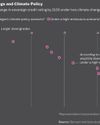
Bloomberg Markets
Climate Risks Come for Sovereign Credit
FOR YEARS climate scientists have warned about the ferocious wildfires and hurricanes that are now overwhelming many communities. Today alarms are ringing about a related financial danger: risks lurking within government bonds, the biggest part of the global debt market.
7 mins
October - November 2021

Bloomberg Markets
Responsible-Investing Pioneer Lydenberg Says ESG Needs An Upgrade
STEVE LYDENBERG’S passion for social change was inspired by anti-Vietnam War demonstrations, consumer boycotts, and the movement to divest from apartheid South Africa. But he didn’t take to the streets. Instead, Lydenberg turned to the world of finance to help catalyze societal change.
8 mins
October - November 2021

Bloomberg Markets
Engine No. 1's Grancio: ‘People Will Appreciate an Economic Argument'
ENGINE NO. 1 sent shock waves across corporate America in May when the fledgling investment firm won a boardroom battle with Exxon Mobil Corp., securing three seats on the oil and gas giant’s board after purchasing only about $40 million of its stock.
6 mins
October - November 2021
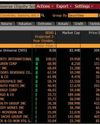
Bloomberg Markets
Find Out Which Companies May Ramp Up Payouts After Covid
AS THE PANDEMIC DISRUPTED business last year, many companies cut or suspended dividends. Which will boost their payouts when economies pick up again?
2 mins
October - November 2021
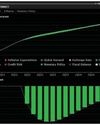
Bloomberg Markets
Get Into the Minds of Central Bankers as They Navigate Shocks
HAVE YOU EVER WONDERED how central bankers forecast the impact of shocks on the economy?
4 mins
October - November 2021
Translate
Change font size
